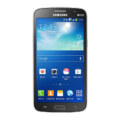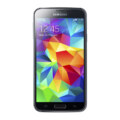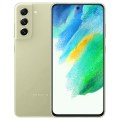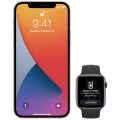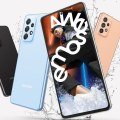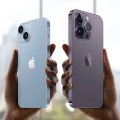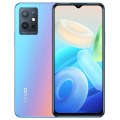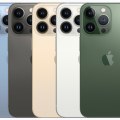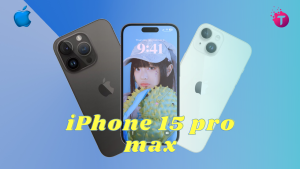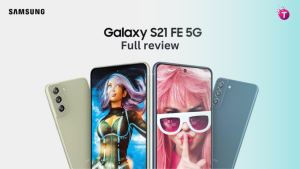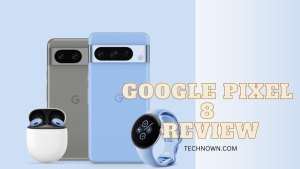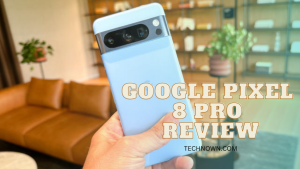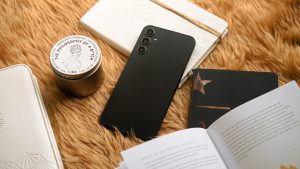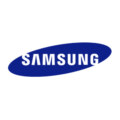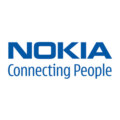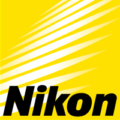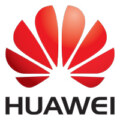Samsung Galaxy S23 FE
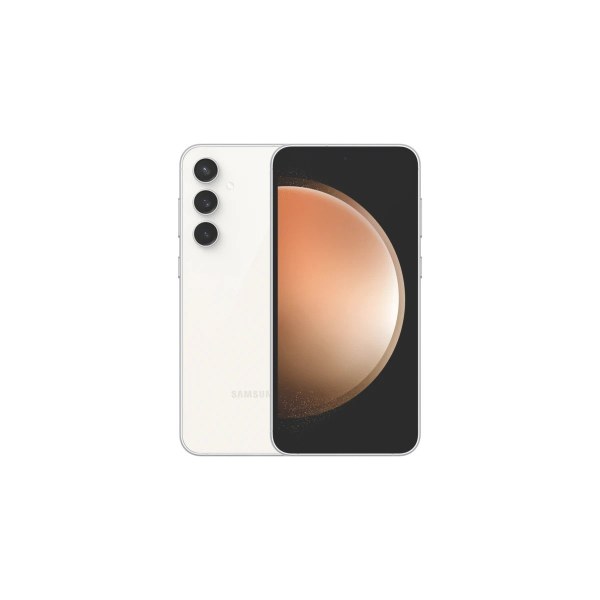


-
CPU: Octa-core (1x2.8 GHz Cortex-X2 & 3x2.50 GHz Cortex-A710 & 4x1.8 GHz Cortex-A510)
-
RAM: 8GB
-
Storage: 128GB/256GB
-
Display: 6.4 inches, 100.5 cm2
-
Camera: 50 MP, f/1.8, 24mm (wide), PDAF, OIS
-
OS: Android 13
Introduction
In the ever-evolving world of smartphones, Samsung is consistently at the forefront of innovation. With the release of the Samsung Galaxy S23 FE (Fan Edition), their commitment to providing consumers with top-notch features and cutting-edge technology is once again evident. Building on the success of its predecessors, the Galaxy S23 FE offers a stunning blend of performance, design and functionality. That is sure to please both Samsung loyalists and newcomers alike. In this blog post, we’ll take a closer look at what makes the Samsung Galaxy S23 FE a device worth considering.
Design and build
The Galaxy S23 FE carries on Samsung’s reputation for exceptional design. The device boasts a sleek and premium look with a glass back and an aluminum frame, giving it a strong and elegant feel. Its slim profile. And ergonomic design make it comfortable to hold and use for extended periods of time.
A notable aspect of the S23 FE’s design is its range of vibrant color options. Allowing users to choose from a stylish and eye-catching color palette. Samsung understands the importance of personalization. And this device lets you express your style while enjoying top-level performance.
Display
One of the highlights of the Samsung Galaxy S23 FE is its stunning display. It has a large 6.4-inch Super AMOLED display with Full HD+ resolution. Which delivers vibrant colors, deep blacks and impressive brightness. The Infinity-O design ensures an almost bezel-less experience. Which makes content consumption, gaming and multitasking a joy.
performance
Under the hood, the Galaxy S23 FE is powered by either Samsung’s Exynos or Qualcomm Snapdragon chipset, depending on your region. Whether you’re running demanding apps or playing graphics-intensive games, it ensures snappy performance. With ample RAM and storage options available, you can easily store your files. Apps and multimedia content without worrying about running out of space.
The S23 FE also supports 5G connectivity, providing faster download. And streaming speeds, lower latency and improved overall connectivity.
Camera system
Another area where it excels is the Samsung Galaxy S23 FE’s camera system. It has a versatile triple-lens setup on the back, which includes a 50MP primary camera. A 12MP ultra-wide-angle lens and an 8MP telephoto lens. These cameras work together to capture stunning photos and videos in various lighting conditions.
Samsung has also included a range of camera features and modes such as Super Steady Video. Single Take and Pro Mode to enable users to express their creativity. The front-facing 32MP camera is equally impressive. Ensuring you can take high-quality selfies and engage in crystal-clear video calls.
Battery life and charging
A long-lasting battery is essential for a smartphone, and the Galaxy S23 FE does not disappoint. It comes with a large battery that can easily get you through a full day of use, even after heavy usage. Samsung’s advanced battery optimization ensures efficient power management.
The device supports fast charging, allowing you to quickly top up your battery when needed. Additionally, it offers wireless charging and reverse wireless charging. Enabling you to share power with other devices like wireless earbuds or a friend’s smartphone.
Software and Features
The Samsung Galaxy S23 FE runs on the latest version of Samsung’s One UI built on top of Android. One UI offers a user-friendly and customizable interface with many features that enhance the overall user experience. Samsung provides regular software updates to ensure your device stays secure and up-to-date.
safety
Samsung takes your security seriously, and the Galaxy S23 FE has several security features. It has an in-display fingerprint scanner for quick. And secure unlocking with facial recognition technology. Additionally, Samsung Knox provides defense-grade security to protect your data and privacy.
Conclusion
The Samsung Galaxy S23 FE is a remarkable smartphone. That combines a stunning design, powerful performance, an impressive camera system and other features to provide users with an exceptional experience. Whether you’re a long-time Samsung fan or looking to switch to this famous brand, the Galaxy S23 FE is a device that deserves your attention.
With its attractive design, gorgeous display, robust performance and top-notch camera capabilities, the Galaxy S23 FE is a strong contender in the competitive smartphone market. This is a testament to Samsung’s commitment to innovation and delivering value to its users. If you’re in the market for a new smartphone, the Samsung Galaxy S23 FE is definitely a device to consider.
Specs
General
| Device Type | Smartphone |
| Model | SM-S711B, SM-S711B/DS, SM-S711U1, SM-S711U, SM-S711W, SM-S7110 |
| Announced | 04 October, 2023 |
| Released | 05 October, 2023 |
| Status | Available |
| Price | 80000 |
Design
| Type <strong>Design Type</strong> called form factor refers to a mobile phone's size, shape, and style as well as the layout and position of major components of phone. There are three major form factors seen in mobile phones => bar phones, folding phones and sliding phones. | Bar |
| Dimensions | 158 x 76.5 x 8.2 mm (6.22 x 3.01 x 0.32 in) |
| Weight | 209 g (7.37 oz) |
| Protection |
Glass front (Gorilla Glass 5), glass back (Gorilla Glass 5), aluminum frame |
| Colors |
Mint, Cream, Graphite, Purple, Indigo & Tangerine |
Network
| 2G Network |
GSM 850 / 900 / 1800 / 1900 - SIM 1 & SIM 2 (Dual SIM model only) |
| 3G Network |
HSDPA 850 / 900 / 1700(AWS) / 1900 / 2100 |
| 4G Network | LTE |
| 5G Network |
SA/NSA/Sub6 |
| SIM <strong>SIM</strong> (Subscriber Identity Module) is a small card that contains mobile network subscriber's account information. This allows the phone using the card to attach to a mobile network. The SIM card is most commonly associated with GSM and UMTS mobile networks. Moving a SIM card from one phone to another allows a subscriber to switch mobile phones without having to contact their mobile network carrier. SIM cards can also be used by a phone to store limited amounts of data, such as phone numbers and text messages. | Nano SIM |
| Dual SIM | Yes |
Display
| Display Type <strong>Display Technology => </strong> A number of display technologies and types used in mobile phones => TFT (Thin Film Transistor), IPS (In-Place Switching), OLED (Organic Light Emitting Diode), AMOLED (Active-Matrix Organic Light-Emitting Diode), Super AMOLED (an even advanced version of AMOLED), Resistive Touchscreen (Resistive touchscreens contain two layer of conductive material with a very small gap between them which acts as a resistance), Capacitive Touchsceen (Capacitive touchscreen technology consists of a layer of glass coated with a transparent conductor) | Dynamic AMOLED 2X capacitive touchscreen, 16M colors |
| Size | 6.4 inches, 100.5 cm2 |
| Resolution | 1080 x 2340 pixels |
| Pixel Density <strong>Pixel Density (PPI)</strong> is refers to the concentration of pixels on a particular display, measured in pixels per inch (ppi). Pixel density is calculated by dividing the diagonal pixel resolution of a display by its diagonal size, higher pixel density better display quality. | 403 ppi density |
| Touch Screen | Yes |
| Display Protection <strong>Display Protection => </strong> Gorilla Glass is a special alkali-aluminosilicate glass shield with exceptional damage resistance that helps protect mobile displays from scratches, drops, and bumps of everyday use, It is always better to go for a smartphone with Gorilla Glass for that added protection and peace of mind. | Corning Gorilla Glass 5 |
| Features |
- 120Hz refresh rate - 1450 nits (peak) brightness |
Media
| Alert Types | Vibration; MP3, WAV ringtones |
| Loudspeaker | Yes - Stereo Speakers |
Camera
| Primary <strong>Camera</strong> is able to capture photographs and usually videos, The most important characteristics of a camera are the resolution (measured in megapixels), lens focus type (fixed or automatic), higher megapixel cameras are known to capture higher quality photos, but not always a good measurement of the photos quality. | 50 MP, f/1.8, 24mm (wide), PDAF, OIS 8 MP, f/2.4, 75mm (telephoto), PDAF, 3x optical zoom 12 MP, f/2.2, 123˚ (ultrawide) |
| Image | 8150 x 6150 Pixels |
| Video | 4K@30fps, 1080p@30/60/120fps |
| Camera Features |
Face Detection autofocus, Dual Pixel autofocus, Exposure compensation, ISO control, Continuous Shooting, High Dynamic Range mode (HDR), Digital Zoom, Auto Flash, Face detection, Touch to focus |
| Flash <strong>Flash Light => </strong> There is commonly two types of flash lights are used in camera mobile phones, LED Flash (LED flash offers lower power consumption with drive circuitry that takes up very little room, LEDs can be strobed faster than any other light source), Xenon Flash (xenon flash produces an extremely intense full-spectrum white light for a very short duration) | Yes |
| Secondary | 10 MP, f/2.4, 26mm (wide) |
Software
| Operating System <strong>OS => </strong> Every computer system run on a base software called Operating System (OS). Operating System controls all basic operations of the computer (such as smartphone, PDAs, tablet computers and other handheld devices). The Operating System allows the user to install and run third party applications (apps), apps are used to add new functionality to the device. | Android 13 |
| Facebook <strong>Facebook</strong> is a popular free social networking website that allows registered users to create profiles, upload photos and video, send messages and keep in touch with friends, family and colleagues. The site is available in 37 different languages. | |
| Youtube <strong>Youtube</strong> is a popular free video-sharing website, Youtube is the largest video sharing site in the world, Millions of users around the world have created accounts on the site that allow them to upload videos that anyone can watch. |
Hardware
| Chipset <strong>Chipset</strong> is a group of integrated circuits designed to perform one or a more dedicated functions, often with real time computing constraints, Popular smartphones are equipped with more advanced embedded chipsets that can do many different tasks depending on their programming. | Exynos 2200 (4 nm) - International Qualcomm SM8450 Snapdragon 8 Gen 1 (4 nm) - USA |
| CPU <strong>CPU</strong> (Central Processing Unit) mostly known as processors, CPU processes instructions in order to carry out certain functions that make your device operate properly. Processors are often described as the brain of computers, smartphones and tablets, Smartphones and tablets rely on processors to carry out their every task, Processors are an incredibly important factor in selecting any type of computing device, including your smartphone. | Octa-core (1x2.8 GHz Cortex-X2 & 3x2.50 GHz Cortex-A710 & 4x1.8 GHz Cortex-A510) - International Octa-core (1x3.00 GHz Cortex-X2 & 3x2.50 GHz Cortex-A710 & 4x1.80 GHz Cortex-A510) - USA |
| GPU <strong>GPU</strong> (Graphics Processing Unit) is a single-chip processor designed to rapidly manipulate and alter memory to accelerate the creation of images in a frame buffer intended for output to a display, This includes things such as lighting effects, object transformations, and 3D motion. | Xclipse 920 - International - 64 bit Adreno 730 - USA - 64 bit |
| RAM (Memory) <strong>RAM</strong> (Random Access Memory) is a type of computer memory that can be accessed randomly, any byte of memory can be accessed without touching the preceding bytes that allows information to be stored and accessed quickly from random locations. RAM is the most common type of memory found in computer systems, smartphones, tablets and other electronic devices. | 8 GB |
| Internal Storage <strong>Internal Storage</strong> is a data storage space (flash memory) mostly used in smartphones, tablets and other electronic devices where operating system, apps, music, photos, videos, files and other user data Is stored. | 128GB/256GB |
| Card Slot <strong>Memory Card Slot</strong> is a special slot for inserting a memory card. Memory cards allow you to expand the phone's built-in memory, A memory card (sometimes called a flash memory card or a storage card) is a small storage medium used to store data such as text, pictures, audio, and video, for use on small, portable or remote computing devices such as mobile phones, mp3 players, digital cameras. | No |
| Sensors <strong>Sensors</strong> are electronic components that detects and responds to some type of input from the physical environment. The specific input could be light, heat, motion, moisture, pressure and location, The output is generally a signal that is converted to use in computing systems, a location sensor, such as a GPS receiver is able to detect current location of your electronic device. |
Fingerprint (under display, optical), accelerometer, gyro, proximity, compass |
Connectivity
| Bluetooth <strong>Bluetooth</strong> is a wireless communications technology for exchanging data between mobile phones, headsets, computers and other network devices over short distances without wires, Bluetooth technology was primarily designed to support simple wireless networking of personal consumer devices. | 5.3, A2DP, LE |
| Infrared <strong>Infrared</strong> connectivity is an old wireless technology used to connect two electronic devices. It uses a beam of infrared light to transmit information and so requires direct line of sight and operates only at close range. | |
| Wi-fi <strong>Wi-Fi</strong> is a popular wireless networking technology using radio waves to provide high-speed network connections that allows devices to communicate without cords or cables, Wi-Fi is increasingly becoming the preferred mode of internet connectivity all over the world. | Wi-Fi 802.11 a/b/g/n/ac/6e |
| Wi-fi Hotspot | |
| USB | USB Type-C, OTG |
| GPS <strong>GPS</strong> The Global Positioning System is a satellite-based radio navigation system, GPS permits users to determine their position, velocity and the time 24 hours a day, in all weather, anywhere in the world, In order to locate your position, your device or GPS receiver must have a clear view of the sky. | Yes with a GPS |
| NFC <strong>NFC</strong> (Near field communication) is a set of standards for smartphones and similar devices to establish peer-to-peer radio communications with each other by touching them together or bringing them into proximity, usually no more than a few inches. | |
| HDMI <strong>HDMI</strong> (High-Definition Multimedia Interface) is a compact audio/video interface for transferring uncompressed video data and compressed or uncompressed digital audio data from a HDMI-compliant source device to a compatible computer monitor, video projector, digital television, or digital audio device. | |
| Wireless Charging <strong>Wireless Charging</strong> (Inductive Charging) uses an electromagnetic field to transfer energy between two objects. This is usually done with a charging station. Energy is sent through an inductive coupling to an electrical device, which can then use that energy to charge batteries or run the device. | Yes |
Data
| GPRS <strong>GPRS</strong> (General Packet Radio Service) is a packet oriented mobile data service on the 2G and 3G cellular communication system's global system for mobile communications (GSM), Generally, GPRS is used for the purpose of wireless data transfer, such as sharing pictures and videos or browsing the Internet via a mobile phone connection. | |
| EDGE <strong>EDGE</strong> (Enhanced Data GSM Environment) is a wireless network technology generally considered the next step in the 2G network offers data transfer rates up to four times faster than ordinary GSM networks, Generally, EDGE is used for the purpose of wireless data transfer, such as sharing pictures and videos or browsing the Internet via a mobile phone connection. | |
| Speed | HSPA 42.2/5.76 Mbps, LTE-A (CA), 5G |
Messaging
| SMS <strong>SMS</strong> (Short Messaging Service) is a text messaging service component of phone, Web, or mobile communication systems. It uses standardized communications protocols to allow mobile phone devices to exchange short text messages over the networks. | Yes |
| MMS <strong>MMS</strong> (Multimedia Messaging Service) is a standard way to send messages that include multimedia content (audio clips, video clips and images) to and from mobile phones over wireless networks using the WAP protocol. |
Battery
| Battery Type <strong>Battery Type => </strong> Cell phones run on various kinds of batteries depending on the manufacturer, phone size or shape and features. There are basically four types of cell phone batteries => Lithium Polymer, Lithium Ion, Nickel Metal Hydride and Nickel Cadmium. | Li-Ion (Lithium Ion) |
| Capacity <strong>Battery Capacity</strong> is a measure (typically in Amp-hr) of the charge stored by the battery, and is determined by the mass of active material contained in the battery. The battery capacity represents the maximum amount of energy that can be extracted from the battery under certain conditions. | 4500 mAh battery |
| Placement | Up to 1:05 hours with 25W fast charging - 50% in 30 min (advertised) - USB Power Delivery 3.0 - Wireless charging |

